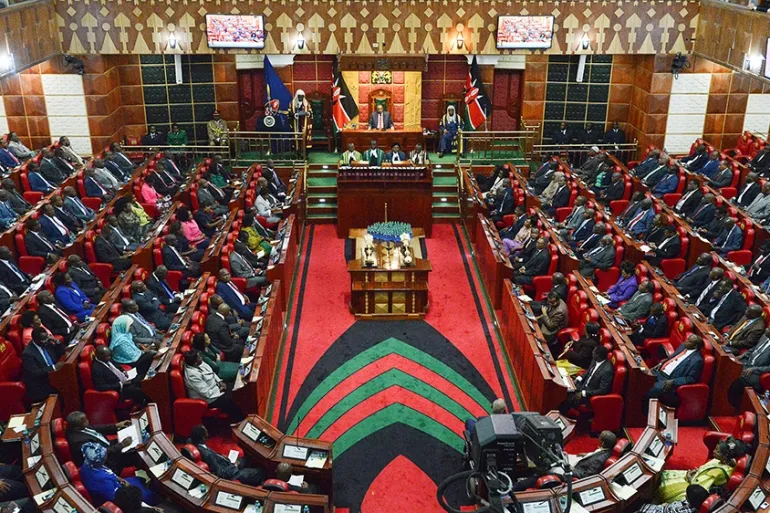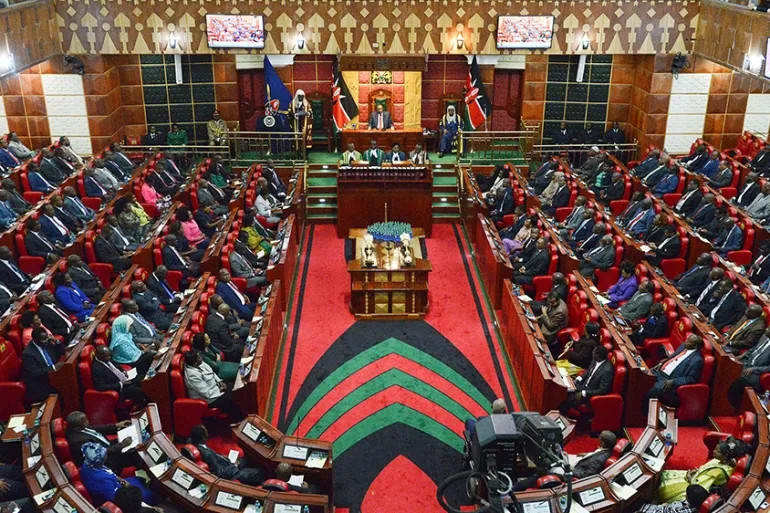
Parliament this week turned its focus inward as Members of the National Assembly and Senate confronted questions of integrity, discipline, legislative performance, and an impeachment proceeding.
The National Assembly held a two-day leadership retreat in Mombasa beginning Thursday, August 21, themed “Renewing Leadership Synergy and Comity for Responsible Discharge of the Mandate of the National Assembly.”
Opening the 3rd Leadership Retreat of the 13th Parliament, Speaker Moses Wetang’ula issued a stern warning to MPs against conduct that risks eroding public trust in the legislature.
He highlighted growing public concern over allegations of inducements influencing parliamentary work, warning lawmakers that integrity remains the cornerstone of credible leadership.
“More than at any other time before, doubt has been placed on our integrity as a House. Without integrity, leaders lose credibility among the people they lead,” Wetang’ula told MPs, invoking Article 73 of the Constitution which outlines principles of selflessness, accountability, and respect for citizens.
The Speaker also urged members to prioritise ethics, consistent attendance, and commitment to public service, warning that leadership devoid of integrity “ultimately fails.”
National Assembly Majority Leader Kimani Ichung’wah cautioned that misinformation and disinformation are threatening to overshadow Parliament’s achievements.
He noted that while the House had registered significant progress in legislation and oversight, its record was being clouded by negative narratives.
Ichung’wah further expressed concern over stalled legislation, with 11 bills—seven from the Senate and four from the National Assembly—currently stuck in mediation as of August 15.
Minority Leader Junet Mohamed defended Parliament against what he termed unfair criticism, pointing to progress in critical sectors such as housing, health, and infrastructure. However, he acknowledged the need for candid dialogue on Parliament’s public image and internal discipline.
“We need a closed-door session to discuss the pertinent issues. It is us sitting here that will determine the discipline of Parliament,” Junet remarked.
Across town, the Senate made headlines with its decision to hear the impeachment of Kericho Governor Erick Mutai in a full plenary session. An earlier bid to form an 11-member special committee collapsed after Minority Leader Stewart Madzayo declined to second a motion moved by Senate Majority Leader Aaron Cheruiyot.
Speaker Amason Kingi subsequently gazetted special sittings on August 27, 28, and 29 for the plenary hearings, marking a critical test for the Senate’s oversight role.
Meanwhile, the Senate Committee on Labour and Social Welfare turned its attention to the Kenya Railways Staff Retirement Benefits Scheme (KRSRBS).
Amid mounting concerns from pensioners, the Committee directed the Kenya Railways Corporation, the Retirements Benefit Authority, the National Treasury, and affected retirees to hold a tripartite meeting and report back within a month.
West Pokot Senator Julius Murgor, who chairs the Committee, said the pension scheme’s heavy investment in property—nearly 90 per cent of its Sh38.46 billion assets—has left it cash-strapped, worsening the plight of retirees.
National Treasury Cabinet Secretary John Mbadi explained that pension benefits for former Kenya Railways employees were historically offered under a non-contributory, pay-as-you-go scheme, complicating the current settlement process.

Leave a Reply